 Onsel Gurel Bayrali
Onsel Gurel Bayrali
obayral1@binghamton.edu
PhD Candidate, Political Science, Binghamton University
Bayrali's research focuses on the intersection of public policy and comparative politics, particularly within decentralized systems. He explores the influence of party organizations on the motivations of incumbents to collaborate and share risks, especially in times of crises.
 Mallory E. Compton
Mallory E. Compton
mallory.compton@exchange.tamu.edu
Assistant Professor, The Department of Public Service and Administration, Texas A&M University, The Bush School of Government & Public Service
Dr. Compton’s research and teaching interests include bureaucracy and public governance, public policy, comparative political economy and social welfare policy. Her writings have been published in a range of journals including the Journal of Politics, State Politics and Policy Quarterly, the Oxford Research Encyclopedia of Business and Management, Public Administration, and Public Management Review.
 Peter Gerbrands
Peter Gerbrands
p.gerbrands@uu.nl
Post Doctoral Researcher, Law, Economics and Governance, Utrecht University School of Economics; Applied Economics, Utrecht University/Binghamton University
His main research interests are agent-based simulation, social network analysis, complex systems, big data analysis, statistical learning, and computational social science. He applies his skills primarily for policy analysis, especially related to tax compliance and tax morale. In October 2020, he was recruited for a postdoc position at Utrecht University School of Economics where he will setup a data infrastructure with information on Dutch companies, the FIRMBACKBONE project.
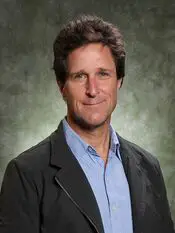 William B. Heller
William B. Heller
wheller@binghamton.edu
Associate Professor, Political Science, Binghamton University
Dr Heller specializes in the effects of legislative and constitutional institutions, focusing in particular on how decision-making structures and processes affect politicians' ability and willingness to influence policy making in advanced industrialized parliamentary systems. He also has an abiding interest in the policy-making effects of such constitutional structures as bicameralism and federalism. Professor Heller's current research focuses primarily on how parties adapt to legislative institutions. In recent work, he has examined party switching by sitting legislators, government agenda setting in Italy, and the possibility of achieving cooperation in large groups of selfish actors.
 Timothy Hellwig
Timothy Hellwig
thellwig@buffalo.edu
Professor, Political Science, University of Buffalo
Dr Hellwig’s interests are in the areas of comparative political economy, political behavior, political parties, and research methods. His work examines the implications of changes in post-industrial economies for policy preferences, voting decisions, and political representation.
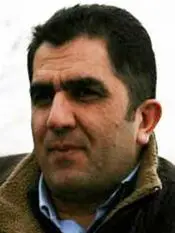 Ekrem Karakoc
Ekrem Karakoc
ekarakoc@binghamton.edu
Professor, Political Science, Binghamton University
Dr. Karakoç is specialized in Comparative Politics with a focus on comparative political economy and democratization. He has focused on the determinants and consequences of economic inequality on political institutions and behavior. He has also been working on globalization and immigration. His new research projects examine the intersection of religion and ethnicity in the Middle East context.
 Daniel B. Magleby
Daniel B. Magleby
dmagleby@binghamton.edu
Associate Professor, Political Science and Economics, Binghamton University
Dr. Magleby’s research interests focus on American political institutions particularly Congress, parties, and polarization. He joined the Binghamton faculty in the fall of 2013 and teaches courses on the United States Congress, the presidency, parties and interest groups in American politics.
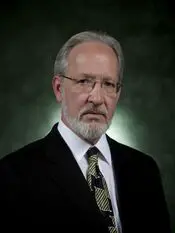 Michael D. McDonald
Michael D. McDonald
Professor, Political Science, Binghamotn University
Dr. McDonald is interested principally in questions about political representation. He is currently working on two book projects. One investigates the role of political parties in the translation of public concerns into public policies in Western democracies; another reports and evaluates political parties' policy position taking in election manifestoes.
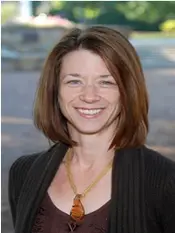 Kim Maslin
Kim Maslin
maslin@hendrix.edu
Bill and Connie Bowen Odyssey Professor, The Department of Politics, Hendrix College
Dr Maslin’s research interests lie in political theory, epistemology, feminist politics and research methods.
 Scott Morgenstern
Scott Morgenstern
smorgens@pitt.edu
Professor, Political Science, University of Pittsburgh
Dr. Morgenstern is a Professor of Political Science, and has been at the University of Pittsburgh since 2005. He served as the Director of Pitt's Center for Latin American Studies from 2014-2018. His research focuses on political parties, electoral systems, and legislatures, with a regional specialization in Latin America.
 Ekaterina Rashkova-Gerbrands
Ekaterina Rashkova-Gerbrands
e.rashkova@uu.nl
Associate Professor, Law, Economics and Governance, Utrecht School of Governance and Management, Utrecht University/Binghamton University
Dr Rahskova-Gerbrands’s research interests lie in the study electoral and party systems, the strategic behavior of political actors, and representation. She is interested in how institutions shape decisions and therefore outcomes. She studies party system development, electoral and party regulation and representation, with a focus on gender and immigrants. Her current research interests include the political integration of non-citizen residents in host countries, as well as the connection of national political parties to their diaspora abroad.
 Mitch Sanders
Mitch Sanders
mitchsanders@melioraresearch.com
Partner, Meliora Research (Rochester NY)
Dr. Sanders conducts market research for private sector and academic clients. From 2017 to 2021 he was Director of Survey Research for Bright Line Watch.
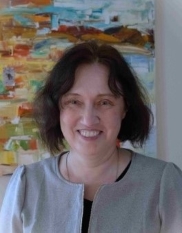 Olga Shvetsova
Olga Shvetsova
shvetso@binghamton.edu
Professor of Political Science and Economics, Scientific Director of COVID-19 Policy Response Lab, Binghamton University
Dr. Shvetsova’s research focuses on determinants of political strategy in the political process. Broadly stated, these include political institutions that define the “rules of the game” and societal characteristics that shape goals and opportunities of the participant players. Her work belongs in the fields of constitutional political economy and institutional design.
 Reidar Staupe
Reidar Staupe
reidar.staupe-delgado@uit.no
Department of Technology and Safety,Faculty of Science and Technology, UiT the Arctic University of Norway
Reidar Staupe is a member of research group “Risk, Crisis, and Societal Security” (RCSS)
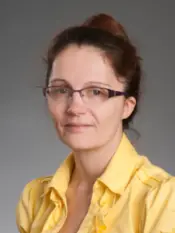 Julie VanDusky-Allen
Julie VanDusky-Allen
JulieVanDuskyAllen@boisestate.edu
Assistant Professor, Political Science, Boise State University
Dr. VanDusky-Allen’s research within comparative politics focuses on formal and informal institutions, political parties, legislative organization, political participation, and support for and satisfaction with democratic outcomes. Dr. VanDusky-Allen is also a member of a collaborative research team that examines government responses to COVID-19 throughout the world. Within international relations, Dr. VanDusky-Allen’s research focuses on how US troop deployments influence host-state defense spending.
 Andrei Zhirnov
Andrei Zhirnov
a.zhirnov@exeter.ac.uk
Lecturer, Politics, University of Exeter
Dr Zhirnov is a quantitative political scientist working in the field of Comparative Politics, specifically the comparative studies of political institutions and the comparative studies of electoral systems. He is a member of the project titled “Populism’s Roots: Economic and Cultural Explanations in Democracies of Europe (PRECEDE).”